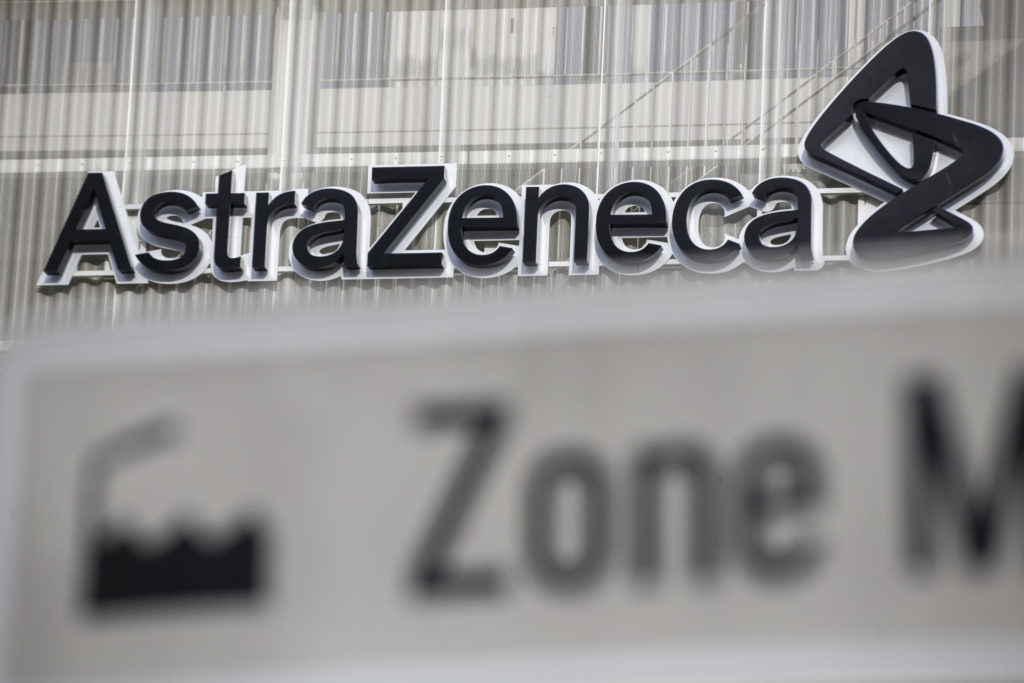In the years to come when university business school professors choose corporate management case studies to underline how a respected multinational corporation's credibililty can quickly vanish, AstraZeneca's performance over the past year will surely feature.
It is hard to believe that it was only 11 months ago the British-Swedish drugmaker flashed a bit of light on the dark days on the initial pandemic lockdown with an agreement to collaborate with the University of Oxford Vaccine Group and the Jenner Institute to manufacture a covid vaccine. The latter's world renowned reputation as a vaccine producing pioneer was one of the first signals that science could corral the deadly virus as it spread across the planet.
The news was all the more positive because the production of the AstraZeneca-Oxford vaccine would be inexpensive, could be stored at refrigeration temperatures and would benefit from established global distribution networks.
A month later AstraZeneca announced it had agreed to supply the EU with 400 million doses of its covid vaccine by the end of 2020 – enough to provide a jab for nearly all of the 27-country bloc's population.
But starting in November AstraZeneca's reputation has been on a dizzying descent. The downhill trail is full of so many head-scratching stumbles it is hard to keep up with them all. In short, it is no exaggeration to say that the company's mismanagement has played a major role in provoking a potential EU-U.K. vaccine trade war as well as a looming litigation battle with the European Commission. At the same time the AztraZeneca flubs have been manna from heaven for the anti-pharma, conspiracy minded no-vax movement.
The first sign of AstraZeneca management trouble emerged with the interim vaccine efficacy rates announced at the end of November and reconfirmed in early December. Despite hailing Phase III clinical trials success independent scrutiny revealed confusing, incomplete and sometimes erroneous dosage data.
Those problems led to delays in its vaccine approval in the EU and the United States, where the U.S. Food and Drug Administration has yet to authorize it. Because the incomplete AstraZeneca Phase III trial studies did not include any persons over 65 some some EU countries restricted its use for the elderly after the EMA authorized it.
But the real plunge in Astrazeneca's European reputation occurred in January when the drug-maker announced it was slashing its first quarter EU vaccine supply commitment. Sounding like a hawker in a Turkish bazaar instead of reputable corporate entity the company issued a series "first-come, first serve'' excuses for why the U.K. supply was not disrupted but the EU's was. Moreover, AstraZeneca CEO Pascal Soriot, in an interview with the Italian newspaper La Republica, said the company's the supply problems to the EU were "bad luck".
Obviously the European Commission, under intense pressure to defend its EU role as vaccine contract negotiator for a continent struggling from a mounting death toll and economy choked by lockdowns, was apoplectic. It is in such fits of pique that normally rational, intelligent people make boneheaded decisions such as the Jan. 30 announcement calling for the closure of the border between Ireland and Northern Ireland to ensure AstraZeneca and other vaccines do not leave the EU for the U.K. Fortunately cooler heads prevailed and the Commission backtracked within hours.
But a month later AstraZeneca triggered new outrage with another EU vaccine supply cut for the second quarter. Meanwhile the supply chain to the U.K., which included imports from the EU, continued to flow without interruption. Again AstraZeneca cited contract "clauses'' to justify the EU's "back of the queue'' status.
Three weeks ago European Council President Charles Michel waded into the roiled waters in what by now was turning into a bitter triangular dispute between the company, the EU and the U.K. government. He accused governments including the U.K. of denying vaccine exports whereas millions of doses had already been shipped out of the EU despite it being far behind in the vaccine rollout.
British Foreign Secretary Dominic Raab, a former Brexit negotiator known for his thin-skinned temperament, issued a furious demarche and summoned the EU ambassador – although the U.K. has yet to give the EU ambassador full diplomatic status..
All of the above occurred before multiple EU member states suspended the AstraZeneca vaccine March 15 after reports some recipients, primarily young woman, died from blood clots. The EMA, along with the World Health Organization, reconfirmed March 18 the AstraZeneca vaccine is safe. It also confirmed that similar blood clotting incidents have occurred among recipients of Moderna's and Pfizer's vaccine.
Despite those assurances some EU member states have decided to restrict the use of the AstraZeneca vaccine for young adults. Of course, such confusion has seriously undermined public confidence in a vaccine on a continent now inundated by a third covid wave and a mounting daily death count.
Critics, especially in the United Kingdom, insist the March 15 EU member states' decision to suspend the use of the AstraZeneca vaccine was either a misjudgment or even a jealous political reaction to the successful British vaccine rollout and lingering Brexit resentment. There might be a smidgen of reality in the latter claims but compared to the big picture consequences of the AstraZeneca missteps they are frivolous.
The latest spark in the AstraZeneca feud stems from the production of vaccine materials by drug-maker in the Netherlands and Italy due to be exported to the U.K. Again AstraZeneca claims contracts give the U.K. priority. In response the European Commission insists AstraZeneca has signed conflicting contracts with the EU and the U.K. and has threatened litigation.
At the same time the EU executive body has raised the ante with the U.K. government by proposing legislation that would allow for export restrictions, including to countries where the vaccine roll-out is further advanced than the EU. In the words of one EU diplomat: vaccine exports must be a two-way street between the EU and the U.K.
While the threat of an EU vaccine export ban has triggered typical British tabloid retaliation demands, Boris Johnson and other frontbenchers, including Raab, have toned down the rhetoric. There is a very good reason for that: U.S. President Joe Biden and Irish Prime Minister issued a March 17 Saint Patrick's Day statement calling on the U.K. to abide by its Brexit treaty commitments. The coded message from Biden, a participant in a March 24 EU leader video summit, is clear: constructive engagement with the continent whether it be via Brexit or vaccines is vital, especially if the U.K. hopes to sign a U.S.-EU free trade agreement.
Meanwhile the hole AstraZeneca has been digging since November just gets deeper. Despite the March 18 EMA statement insisting the benefits of the AstraZeneca vaccine outweigh the risks and the March 22 news that U.S. clinical trials for its vaccine showed a 90 percent efficacy rate - raising hopes it would get imminent U.S. FDA emergency approval – a day later it was deja vu.
That was due to a March 22 statement from the U.S. National Institute of Health Allergy and Infectious Diseases. Led by Dr. Anthony Fauci who had the unenviable task of refuting former U.S. President Donald Trump's spurious covid claims, the U.S. NIHAID questioned the AstraZeneca data. It said the company's 90 percent efficacy claims were based on data that "may have been outdated.''
In response AstraZeneca promptly announced March 23 it would be releasing more data to support its U.S. Phase III clinical trial efficacy conclusions. Why the company had not learnt its lesson from the controversy and confusion triggered by its first clinical vaccine efficacy results in December is one of a number of questions current and future corporate management students will ponder.
By Joe Kirwin


